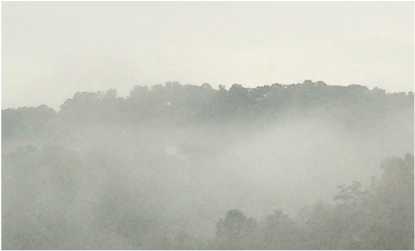|
They were heading from Lexington to Chattanooga when the clouds lowered. When I spent a lot of time in the mountains, I loved to watch pockets of fog nestled in the hollows (pronounced "hollers.") Anjali noticed them, too. I would have posted the classic 1972 recording of "Rolling Fog" on the "Dobro" album by the Seldom Scene, with Mike Auldridge, but I couldn't seem to locate a single. So here is one of America's musical treasures (never mind the glitz), Dolly Parton, singing about East Tennessee. 8/20/2015 12:56:59 pm
Anjali does it again! Sometimes it pays to go around in a fog.
George Vecsey
8/21/2015 01:22:47 am
Alan, I did not know you had that interest. There are such varieties of "American" music. We knew Jean Ritchie....and the McLains....and their traditional music was so different from the more commercial sound of, let's say, the Opry. Let's talk. G
Brian Savin
8/20/2015 01:59:03 pm
There is an interesting article in today's Wall Street Journal about opportunities to learn about and appreciate Tennessee country music. 8/20/2015 09:48:22 pm
Brian
George Vecsey
8/21/2015 01:28:44 am
Brian, thanks, will catch up with that WSJ article. Quite a coincidence. Parton is like a throwback to another time, another place. She found a way to make it commercial....but her music is straight from the British isles, a few centuries back. She did a song called "Shattered Image," about not throwing rocks into the pond with anybody's reflection -- in other words, don't judge her, or anybody. 8/21/2015 01:49:03 am
I believed that Jean Richie lived in Nyack, Rockland County, for awhile and may have had a store. She was authentic and I enjoyed the sound of her dulcimer.
George Vecsey
8/21/2015 02:43:18 am
Alan, not sure she ever lived in Nyack. She and her family lived adjacent to the library in Port Washington for decades -- the back of their house facing into a deep ravine. I once heard her at Ballard High in Louisville, telling the audience that while she now lived in NY (or Long Island, can't remember what she said), her town reminded her of Eastern Kentucky. (North Shore being hilly.) (Louisvillians generally don't relate to the mountains, at all, I discovered, but they appreciated the sentiment.) After her husband passed, she moved to Berea for her final years. A grand American musician. GV
Josh Rubin
8/21/2015 07:31:11 am
I just happened to pass through at the right time and saw the nice things my dad wrote, so I will return the compliment. My parents really did expose me to quite a variety of music - folk, international, classical (I can't say the classical took very well, my indifference to opera is a bit vexing to my mother). So I credit them for the wide variety of music that keeps me engaged -- jazz (most periods), Indian classical (north and south), African (pop and traditional), rock, folk, soul, latin etc. these days our daughter is into Latin pop and we typically keep the Latin station on in the car, now.
Brian Savin
8/21/2015 02:49:23 pm
George, I wouldn't want to challenge Dolly to an IQ competition. She likes to be blunt, cleverly. 8/22/2015 08:52:47 am
Brian Comments are closed.
|
Categories
All
|










